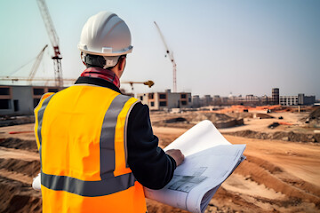The Importance of Environmental Assessments in New Jersey's Development Initiatives
In
New Jersey’s evolving construction and real estate landscape, the role of
environmental assessments has become increasingly critical. Structural
engineers NJ play a key part in launching new projects or renovations, bearing
the responsibility of ensuring not only safety and durability but also
compliance with environmental regulations and sustainability goals. This
highlights the essential nature of a thorough NJ transition study.
Environmental
assessments are designed to evaluate potential contamination of properties and
their ecological implications. Given New Jersey's extensive industrial
background and diverse ecological landscapes, these evaluations are especially
important. Harnessing their expertise and advanced techniques, Structural
engineer NJ
perform these assessments to pinpoint environmental risks associated with a
site, which is crucial for protecting investors, property owners, and the
broader community from unforeseen environmental issues.
The
assessment process generally unfolds in two main stages: Phase I involves a
comprehensive review of records, on-site inspections, and stakeholder
consultations to identify possible pollution threats, while Phase II
incorporates detailed testing and sampling to confirm the presence of hazardous
substances. In New Jersey, this methodology is a fundamental part of a complete
transition study, a thorough examination carried out to ensure seamless
property transitions—whether through sale, redevelopment, or repurposing—are
conducted within legal parameters and with environmental considerations in
mind.
For
structural engineers and developers in NJ, these environmental evaluations
transcend simple regulatory compliance. They are essential tools for enabling
responsible and sustainable development practices. By recognizing and
addressing environmental risks early on, these evaluations contribute to
fostering safer, healthier, and more sustainable communities.
Ultimately,
whether embarking on a new construction project or restoring a historic site in
New Jersey, incorporating environmental assessments into planning and
development activities is vital. Through diligent NJ transition study evaluations, structural
engineers in NJ continue to spearhead efforts that harmonize developmental
objectives with environmental responsibility, paving the path toward a
sustainable future.
For more information about Structural
engineer come and visit our website : https://www.lockatong.com/




Comments
Post a Comment